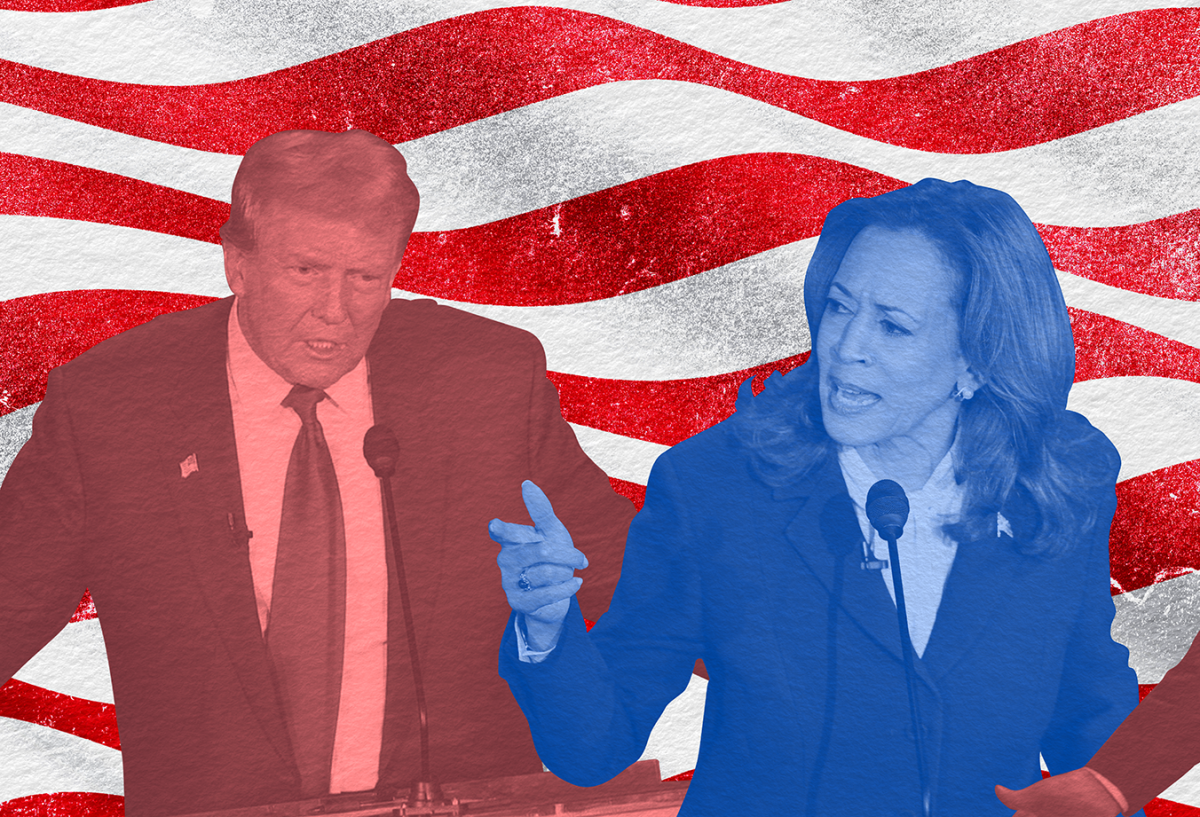Within the span of one weekend, the 2024 presidential election completely changed.
President Joe Biden, after months of falling behind former President Donald Trump in polls, dropped out of the presidential race following a disastrous debate performance. Vice President Kamala Harris then became the presumptive nominee.
Harris enjoyed an immediate boost in polling and a flood of enthusiasm among young people who created online memes about her and projected their hopes for a progressive policy platform onto her. Many, it seems, were relieved that they might have a better candidate than Biden to oppose Trump.
But do they?
Biden’s issues have been much bigger than his visible aging and apparent cognitive decline. His policies have been heavily criticized for failing to address rising costs of living, many of the promises of his 2020 campaign such as student loan forgiveness have gone unfulfilled and progressives in his party base have been sorely disappointed by his rightward shift on several policy areas, to name a few.
But one issue has loomed large over Biden’s administration and now-ended campaign, and it is now casting its shadow over Harris: Palestine.
Out of everything Biden has done to disillusion people who voted for him in 2020, few things have drawn more impassioned criticism than his support for the Israeli military’s assault on the Gaza Strip that has gone on for almost a year and has now spread to the West Bank. As the official number of Palestinian civilian casualties has climbed and experts estimate the real total of direct and indirect deaths to be in the hundreds of thousands, polling has found that people across the political spectrum, but especially Democrats, believe there should be limits on military support for Israel.
Biden, as one of the most vocal proponents of U.S. support for Israel among politicians of both parties, has remained committed to providing the state with weapons and diplomatic cover. High-ranking members of his administration, including Harris, have aligned themselves with his position.
It must be noted that the reason authorization of further weapons shipments to Israel by Biden or any president is so significant is that the U.S. provides the majority of military aid that Israel receives from its allies. Withholding those shipments would force Israel to stop its persistent bombing immediately. Ronald Reagan demonstrated the influence of the U.S. over Israel when he put an end to its invasion of Lebanon with one phone call to Prime Minister Menachem Begin in 1982.
Considering how much power the president has to force the hand of Israel, the question of who holds the office has become extremely important to voters concerned about the situation in Palestine. Now that members of Biden’s administration have admitted that they do not expect a ceasefire deal to come to fruition during his term, the focus has firmly shifted toward the election in November.
Outrage about Palestine motivated hundreds of thousands of Democratic voters, myself included, to choose the “uncommitted” option during the primaries to send the message that Biden, the presumptive nominee at the time, would not have their support without taking meaningful action to prevent the deaths of Palestinian civilians. In the swing state of Michigan where the Uncommitted National Movement originated, the number of uncommitted voters exceeded the organizers’ goal and was strikingly close to the margin by which Biden won the state in 2020.
As important as the catastrophe in Gaza is to so many likely Democratic voters, one would assume that Harris, having taken Biden’s place at the top of the ticket, would separate herself from his perceived failure on this issue and meet the demands of the Uncommitted National Movement. So why has she not done so?
In the days shortly after Harris suddenly became the candidate for her party, she had the excuse that it was too soon to expect policy proposals from her. In that window of time when memes and jokes proliferated, it is not hard to imagine that many people were willing to give her the benefit of the doubt even though she has been part of the administration unconditionally providing weapons to Israel.
Since she started to campaign on policy rather than enthusiasm, it has become harder to pretend that she might be more progressive than the man she currently works for. At a rally in Michigan, a state with a large and electorally consequential population of Muslim Americans, she chastised a group of protesters who started a pro-Palestine chant, which is stunningly bad optics. She softened her tone when similar situations happened at later rallies, but it was not the end of her problems.
At the Democratic National Convention, the delegates representing the Uncommitted movement asked to have a Palestinian American state legislator from Georgia give a speech. This, along with a panel on the issues facing Palestinians, would have shown that the party has respect for its Palestinian American members and constituents. But no time was given for that speech. The fact that several Republicans and the family of an Israeli-American hostage held by Hamas appeared on the stage implies that the party leadership has a certain bias.
Worse still, Harris made clear in her acceptance speech at the end of the convention that she will not stop supporting Israel, mentioning the suffering of Palestinians only as an afterthought and in the passive voice just like Biden has done. Add to this the fact that her national security advisor clarified that she does not support an arms embargo and it becomes impossible to presume the best of her.
Perhaps the final nail in the coffin for her chance to reconcile with the pro-Palestine segment of her voter base is the recent announcement by the Uncommitted National Movement that they will not endorse her for president after she declined to meet with them by the deadline they set. Although the movement leaders called Trump a bigger threat to Palestinians’ welfare in their statement, it is hard to imagine that her snub of this group of concerned Democratic voters will not depress the party’s turnout in a key state.
Personally, I have never bought the Harris hype. I waited to see what she would say about Palestine, and I was not particularly shocked when she revealed that she does not intend to diverge from Biden’s stance. After I watched her promise to be hostile to Iran and China and double down on a draconian border bill in her convention speech and be met by cheers, I felt more hopeless about the future than I have for some time.
Harris still has a solid chance of winning in November, if not because of the success of her political strategy then because of the abject failure of Trump and JD Vance to seem normal or reasonable to median voters. But she is needlessly undermining her path to victory by failing to see that unconditional support for Israel is rapidly becoming a political poison pill, especially in light of its recent bombing of Lebanon that threatens to drag the U.S. into a regional war.
She has no excuse to be so callously dismissive of the plight of Palestinians. She could not possibly lose more support than she gains by promising to stop the rain of bombs that Israel has been dropping on men, women and children for the past 11 months. That is to say nothing of the illegality or immorality of continued support for a state that is facing accusations of war crimes.
In reality, there is an obvious, unambiguously correct choice for Harris to make here. I hope she gets it right.
































































































































































